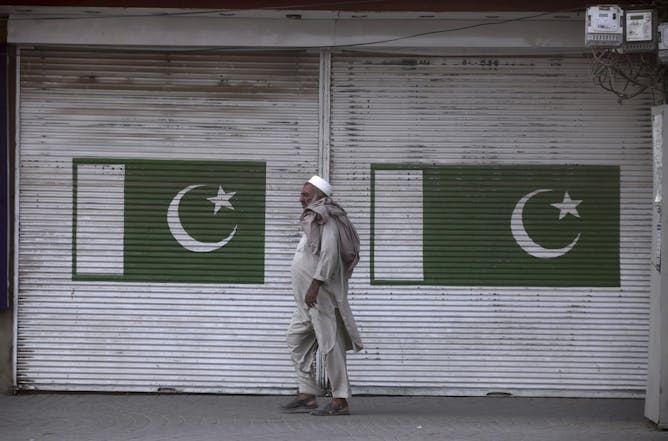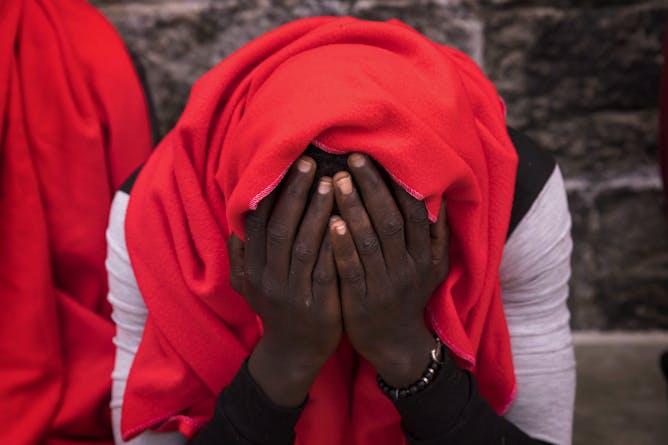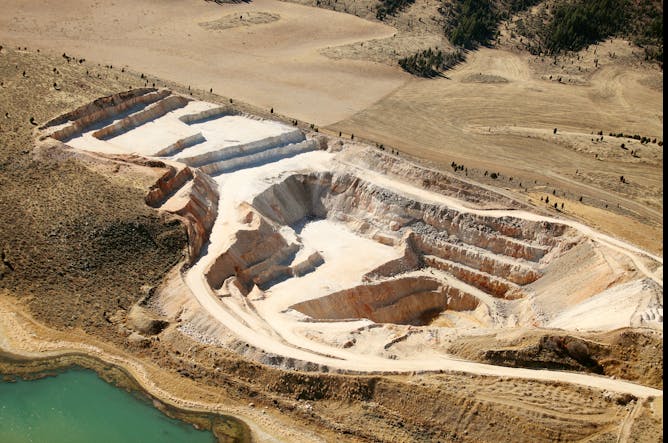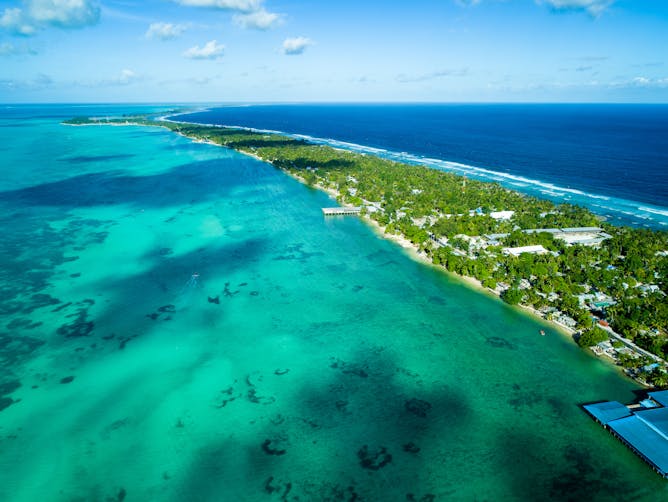|
Pakistani Prime Minister Imran Khan was in Washington on Monday to meet with Donald Trump. On the agenda was the war in Afghanistan, but there were also discussions about trade and U.S. aid to Pakistan’s troubled economy. Today in The Conversation Canada, Kyla Tienhaara of Queen’s University explains a particularly vexing issue facing Pakistan – a ruling by the World Bank that the country must make a multi-billion-dollar payment to a mining company (partially owned by Canada’s Barrick Gold) at a time when Khan’s government is already facing criticism for a new austerity program. The situation raises a larger fundamental question about
what’s wrong with the global economic governance system.
Elsewhere, we look at what Spain is doing right about the ongoing migrant crisis in the Mediterranean and we explain why a worldwide shortage of the plant nutrient phosphate will impact future food production.
And finally…it’s summer and that means parents are often looking for ideas to keep their young children occupied. Lotje Hives and Tara-Lynn Scheffel of Nipissing University have a great idea: create a “reading nest” for kids – and they have provided seven books that youngsters will enjoy reading over and over again.
Regards,
|

A Pakistani man walks past a shop that was closed due to a recent strike in Peshawar, Pakistan. Hundreds of thousands of Pakistani businesses went on strike in a nationwide protest against an increased sales tax, which opposition political parties said was imposed as part of the International Monetary Fund’s recent $6 billion bailout package for Islamabad.
(AP Photo/Mohammad Sajjad)
Kyla Tienhaara, Queen's University, Ontario
Abolishing the secretive World Bank Tribunal known as the ISDS won't solve all of the problems of global economic governance. But it seems a very good place to start.
|

In this June 2018 photo, a migrant rests at the port of Tarifa in southern Spain after being rescued by Spain’s Maritime Rescue Service in the Strait of Gibraltar.
AP Photo/Emilio Morenatti)
Luna Vives, Université de Montréal
European states have the legal and moral obligation to resume search-and-rescue operations in the Mediterranean. Spain's Salvamento Maritimo should lead the way.
|

An open pit phosphate mine. An upcoming shortage of the mineral will threaten global food security.
Shutterstock
Toluwase Olukayode, University of Saskatchewan
Global phosphate production is set to peak in 2030, around the same time the world's population will reach nine billion. As a finite resource, a phosphate shortage will effect global food production.
|

Whether indoors or outdoors, building a makeshift creative space to share the joy of books lays a foundation for early literacy.
(Shutterstock)
Lotje Hives, Nipissing University; Tara-Lynn Scheffel, Nipissing University
A book nest - or nook - is a cost-friendly way to model and enjoy literacy with your preschooler that invites their creative involvement and offers space for positive connections to grow.
|

Un atoll de la République de Kiribati, une nation insulaire du Pacifique Sud en danger de disparition en raison des changements climatiques.
Shutterstock
Sarah M. Munoz, Université de Montréal
Les nations insulaires composées d'atolls risquent d'être anéanties par l'élévation du niveau de la mer. Pourtant, la communauté internationale ne fait pratiquement rien pour les aider.
|
Science + Technology
|
-
Brian J. Love, University of Michigan; Michael L. Burns, University of Michigan
Recent changes to the ball seem to be juicing hitters' stats. But could other factors, like the climate and advanced analytics, also be playing a role?
|
|
Culture + Society
|
-
Milena Belloni, University of Trento
The flow of unaccompanied minors from Eritrea has become the subject of international concern.
|
|
Environment + Energy
|
-
Neville Nicholls, Monash University
Scientists introduced credible climate change to the world in 1979, but it's taken decades for their message to sink in.
|
|